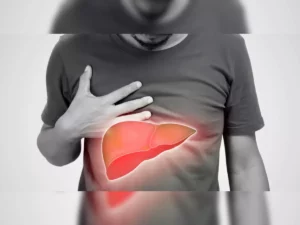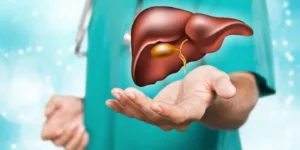Living a normal life with hereditary hemochromatosis is possible if you adopt some habits that can help you maintain better health
Hereditary hemochromatosis is a genetic condition that develops in patients who inherit recessive genes from both parents with the same disease. It causes the body to store iron in much higher amounts than it needs, which can be dangerous for the organs in which the iron is stored.
One of these organs is the liver, which can be particularly affected by not being able to properly absorb the high amounts of iron retained by the body from the food it eats.

If you are interested in learning more about this disease, visit our note on hereditary hemochromatosis. In this article you will find some measures or habits that can help you lead a life with hereditary hemochromatosis with complete peace of mind.
What should the lifestyle of a person with hereditary hemochromatosis be like?
One of the most drastic changes that a person with hereditary hemochromatosis faces has to do with the most common treatment, which involves the regular removal of blood from the body, but there are other habits that can make the disease a more bearable one. Among these are:
- Reducing consumption of foods high in iron.
The first and most obvious recommendation is to reduce or even eliminate the consumption of foods with high iron content such as red meat, offal, fish and seafood, and nuts.

- Avoid consumption of multivitamin complexes that include iron.
We must make sure that the supplements and medications that we ingest do not have iron as a component to avoid further storage of iron.
- Avoid taking vitamin C in excess.
Vitamin C contributes to the absorption of iron, so it is recommended not to take supplements that contain it. However, there is no need to limit it in a healthy diet.
- Eliminate alcohol completely from the diet.
Alcohol consumption increases the risk of liver damage, which is already compromised in patients with hereditary hemochromatosis.
- Avoid consumption of multivitamin complexes that include iron.
We must make sure that the supplements and medications that we ingest do not have iron as a component to avoid further storage of iron.
- Avoid taking vitamin C in excess.
Vitamin C contributes to the absorption of iron, so it is recommended not to take supplements that contain it. However, there is no need to limit it in a healthy diet.
- Eliminate alcohol completely from the diet.
Alcohol consumption increases the risk of liver damage, which is already compromised in patients with hereditary hemochromatosis.

These are some recommendations for patients suffering from hereditary hemochromatosis. The main objective is to reduce the excess iron in the body by limiting its consumption, since this condition causes iron to accumulate in excess.
If symptoms are detected or it is suspected that a person suffers from hereditary hemochromatosis, it is important to see a physician and then visit a gastroenterologist or other similar specialists to make sure that the patient’s diet will allow him/her to have an optimal life with the condition and not suffer from other liver diseases.













